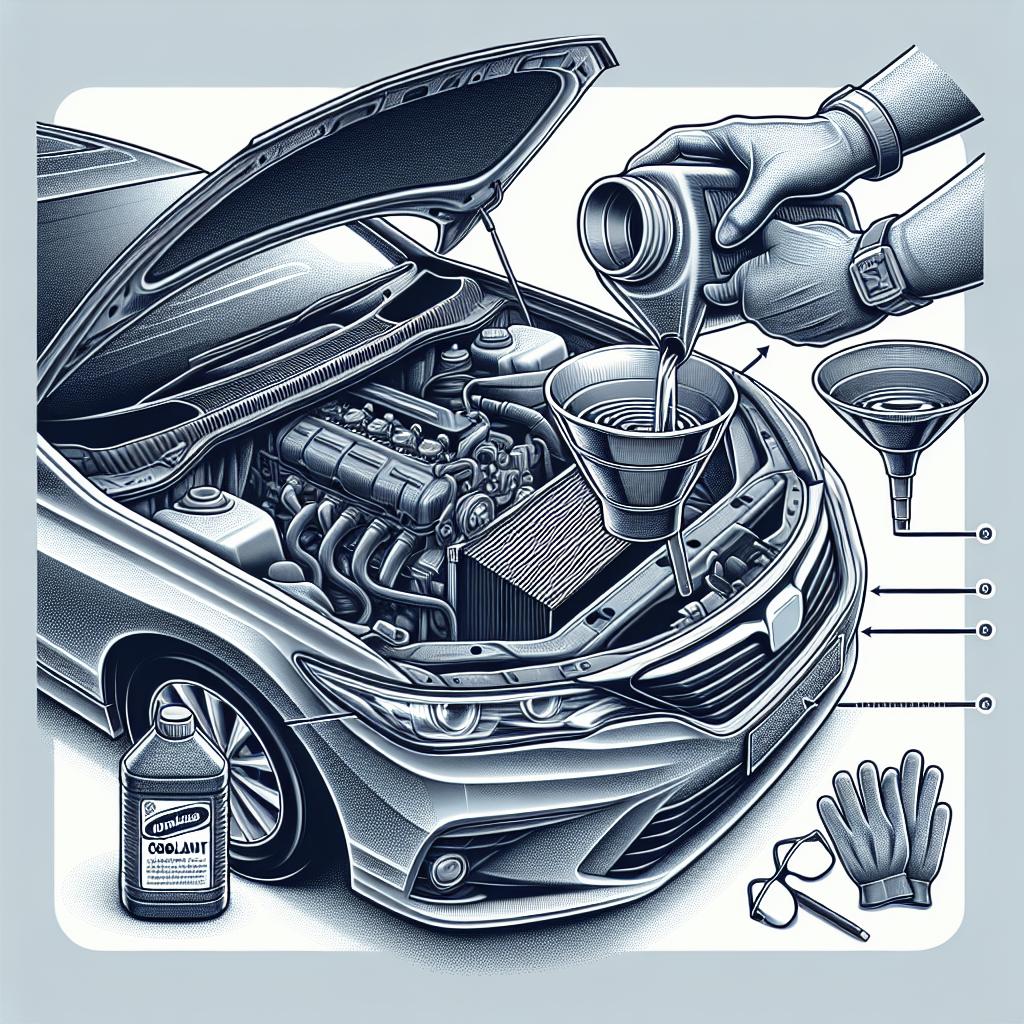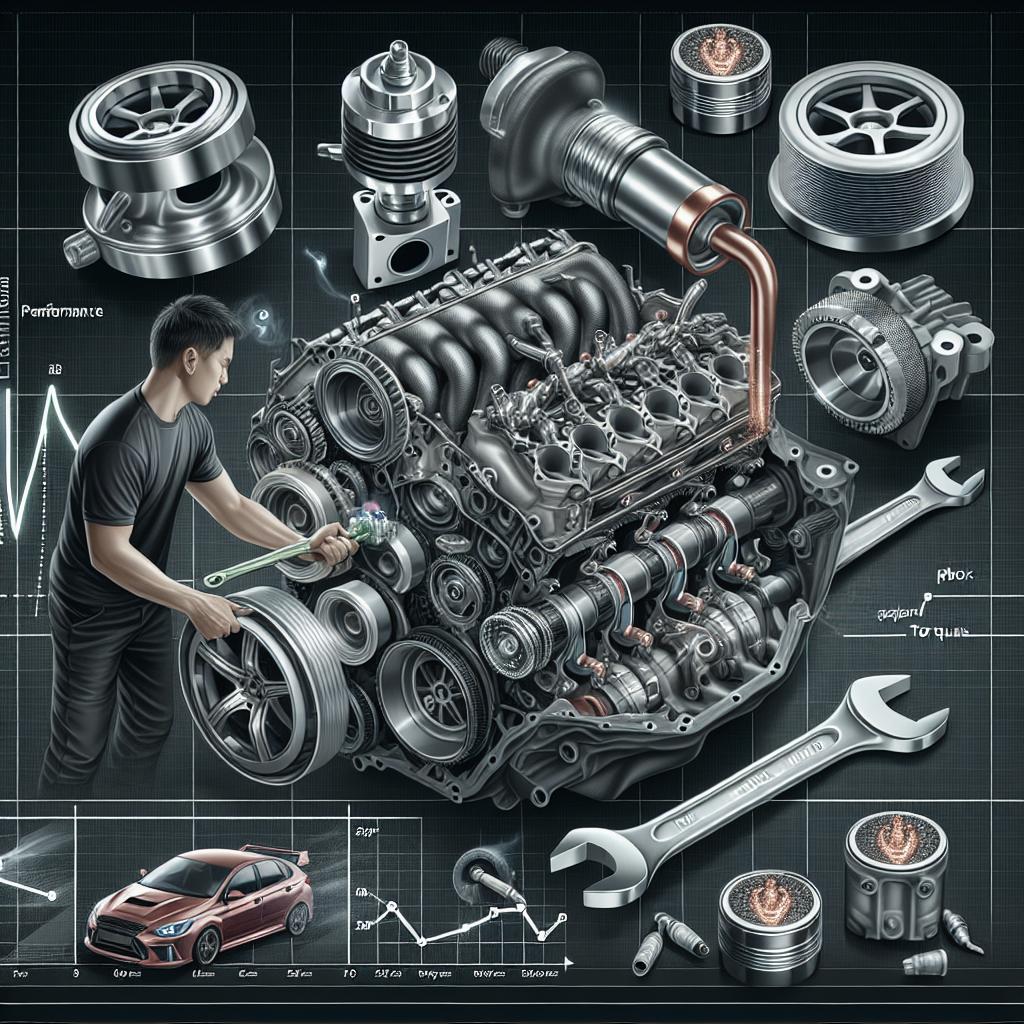“`html
Introduction
For car enthusiasts, the pursuit of the perfect exhaust note often becomes an essential aspect of their driving experience. The sound of an exhaust can dramatically transform the character of a vehicle, making it more exciting and unique. This blog post delves into effective ways to modify your car’s exhaust note, exploring the factors influencing sound and the various components involved. From upgrading mufflers to installing aftermarket systems and experimenting with exhaust tips, this guide provides detailed insights and practical tips for anyone looking to enhance their car’s auditory appeal. Additionally, important considerations are discussed to ensure that modifications remain both legal and aligned with performance goals.
Understanding Your Car’s Exhaust Note
What Influences Exhaust Sound?
Exhaust sound is a symphony of multiple factors including engine type, exhaust path design, and component materials. Each component of the exhaust system, from the header to the tailpipe, influences the overall sound produced. The engine’s combustion process produces gases that travel through the exhaust system, and their flow characteristics determine the final exhaust note.
The primary factors influencing the exhaust sound include the engine’s cylinder count and configuration, not to mention the tuning of the exhaust system. Resonance chambers within the exhaust can amplify or dampen specific frequencies, dramatically changing the final sound. It’s important to note that the engineering behind an exhaust’s sound is as crucial as the parts themselves.
The Role of the Muffler
The muffler is a key component in defining your car’s exhaust sound. It works by cancelling out sound waves produced by the engine, often using reflection or absorption techniques. Different muffler designs, like chambered or turbo-style, can heavily influence what you hear when your engine revs.
Selective muffler modifications can reduce or enhance the pitch and volume of your exhaust note. They play a crucial role in shaping the car’s aural profile, balancing sound intensity with engine performance. Despite popular belief, a straight-pipe setup, which eliminates the muffler, is not always beneficial as it can lead to excessive noise levels that may be illegal and unpleasant.
Modifying Your Exhaust Note
1. Upgrading the Muffler
One of the most straightforward methods to alter your exhaust note is by upgrading to a performance muffler. Aftermarket mufflers are available in various styles, allowing you to select a sound profile that suits your preferences. Whether you’re looking for a deeper growl or a sportier tone, there’s a muffler design to meet your needs.
Opt for reputable brands that offer proven designs which enhance sound without negatively impacting engine flow. Remember that muffler upgrades can be a cost-effective modification, often providing significant auditory and performance improvements without extensive modifications to the rest of the exhaust system.
2. Installing an Aftermarket Exhaust System
For a more comprehensive modification, consider installing a full aftermarket exhaust system. These systems typically come with mandrel-bent tubing, high-flow mufflers, and sometimes larger diameter pipes, yielding a more robust sound and performance improvement.
Aftermarket systems are engineered for optimal exhaust flow, which can lead to gains in horsepower and efficiency. They significantly change your car’s exhaust note by altering sound frequencies. Research and select systems that suit both your sound preference and performance goals.
3. Adding or Removing a Resonator
Resonators work similarly to mufflers but focus on eliminating certain sound frequencies, thus playing a vital role in the exhaust note. Adding or removing a resonator can dramatically change the sound, either smoothing it out or making it more aggressive.
For those seeking a throaty growl or a silky purr, resonator modifications could be the key. However, resonators can also affect performance, so it’s advisable to consider what impact such changes might have on engine efficiency and emissions.
4. Experimenting with Exhaust Tips
Though often overlooked, exhaust tips can influence the tone of your car’s exhaust note. They don’t have as significant an impact as other modifications, but they can finely tune the sound you hear, thanks to their shapes and materials.
Exhaust tips with different diameters or materials like polished stainless steel can add a distinct touch to your car’s sound profile, providing a subtle but noticeable change. It’s a low-cost modification that’s easy to reverse if you’re experimenting with sound changes without wanting to commit.
Considerations Before Modifying
Before diving into exhaust modifications, consider the legal implications, as many locations have noise regulations that could result in fines or failed inspections. It’s essential to ensure that modifications meet local laws and emissions requirements.
Additionally, be mindful of your vehicle’s warranty and the potential impact modifications may have on it. Some modifications can void warranties, leading to unforeseen expenses should mechanical issues arise. A balanced approach that doesn’t compromise vehicle integrity is key.
Final Thoughts
| Aspect | Details |
|---|---|
| What Influences Exhaust Sound? | Engine type, exhaust path design, component materials, resonance chambers. |
| The Role of the Muffler | Muffler types can alter pitch and volume; critical for sound and performance balance. |
| Upgrading the Muffler | Cost-effective modification; enhances sound profile with minimal changes. |
| Aftermarket Exhaust System | Comprehensive modification for robust sound and performance gains. |
| Adding/Removing Resonator | Adjusts specific sound frequencies; impacts sound smoothness or aggressiveness. |
| Exhaust Tips | Subtle sound adjustments; low-cost and reversible modifications. |
| Considerations | Legal, warranty implications, balance between modifications and vehicle integrity. |
“`


